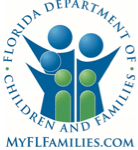Cognitive Behavioral Therapy (CBT)
What Is Cognitive Behavioral Therapy (CBT)?
Dr. Aaron Beck, known as the father of cognitive behavioral therapy (CBT), developed this life-changing therapy in the 1960s. Since then, it’s become one of the most common evidence-based therapy for treating mental health disorders. Cognitive behavioral therapy focuses on how cognitions (or thoughts), emotions, and behaviors relate to each other and how changing the way an individual evaluates a situation can change their behavioral reaction. It’s an evidence-based treatment designed to alter the damaging negative thought patterns and negative feelings that some people develop about themselves. Some examples of pervasive negative thoughts and feelings can include, “No one loves me,” and “I’m not good enough”. These destructive and irrational belief systems can lead to unhealthy coping mechanisms, like substance abuse or self-harm. A mental health professional can utilize cognitive behavioral therapy in individual therapy sessions or in group therapy sessions.



Is Cognitive Behavioral Therapy (CBT) Effective?
Several studies show that cognitive behavioral therapy programs are popular alternatives to medication when it comes to treating mental health conditions. A National Institutes of Health study that examined the efficacy of cognitive behavioral therapy across groups of patients suffering from a wide variety of mental health disorders found that more significant improvement was seen in the groups that underwent cognitive behavioral therapy than in those that did not.
Studies have also found that cognitive behavioral therapy can be as effective in treating depression as prescription antidepressants. Unlike medication, which simply aims to eliminate the symptoms of the mental health conditions, cognitive behavioral therapy focuses on the whole person by addressing the individual’s underlying core beliefs, dysfunctional assumptions, and negative automatic thoughts. Helping individuals identify and change their destructive thoughts and behaviors sets cognitive behavioral therapy apart from other therapies like acceptance and commitment therapy (ACT), mindfulness-based therapies, and dialectical behavior therapy (DBT).

The Three Basic Principles of Cognitive Behavioral Therapy
- Core Beliefs: Core beliefs are deeply held beliefs that an individual believes about themselves, about others, and about the world, which they learned early in life and hold as absolute. One example is an individual believing that “the world is unfair”.
- Dysfunctional Assumptions: Dysfunctional assumptions are rigid, unrealistic, and maladaptive rules for living adopted by individuals. One example is the idea that “it’s better not to try than to risk failing”.
- Negative Automatic Thoughts: Negative automatic thoughts are cognitions that are automatic or involuntarily activated in difficult situations. One example of a negative automatic thought is an individual automatically thinking “My boss thinks I’m doing a terrible job” without a rational basis for that thought.
Therapies That Utilize Cognitive Behavioral Therapy
Cognitive Therapy
Dialectical Behavior Therapy (DBT)
Multimodal Therapy
Rational Emotive Behavior Therapy (REBT)
Exposure Response and Prevention Therapy (ExRP)
Mental Health Disorders We Treat Using CBT
How Our Mental Health Professionals Use CBT
As part of our Clinical Pathways, we offer a Cognitive Behavioral Therapy (CBT) Pathway. In this pathway, the CBT methods we use help clients increase their awareness of irrational thoughts and the internal response to those thoughts, while simultaneously helping them build healthy, non-destructive coping skills. The methods we use require an intense level of participation from both the client and their therapist to help the client learn and practice healthy coping skills and emotional responses. Through cognitive behavioral therapy, clients struggling with a mental illness like post-traumatic stress disorder (PTSD) learn to recognize when involuntary negative thoughts enter their minds as well as the triggers that cause them.
Empathy is also an important component of our cognitive behavioral therapy. For example, a client may feel that they are misunderstood by their friends, family, and loved ones. Through discussion and examination of the client’s point of view, our CBT therapist empathizes and connects with them, helping them to understand that their resulting thoughts and feelings are valid.
Once a strong foundation is established, our CBT therapist helps the client mentally and emotionally organize the life events that have negatively impacted their mental health. By examining each client’s unique experiences and showing them the relationship between their emotional distress and their harmful belief system, our mental health professionals help clients start the recovery and healing process.
It’s important to note that treatment approaches will vary based on each client’s diagnosis and unique needs.
Cognitive Behavioral Therapy Benefits
- The Teaching Aspect: Typically, when using cognitive behavioral therapy, our CBT therapists don’t interpret the client’s mental health disorder or explore the psychodynamics of their history. Cognitive behavioral therapy isn’t simply talk therapy. Instead, it’s a psychological therapy during which clients learn how to improve their mental health by changing their thinking and making better decisions in the here and now. Our therapists act as teachers and help each client learn about the relationships between their thoughts, feelings/emotions, and behaviors.
- Structured Therapy: Cognitive behavioral therapy takes a structured approach rather than being a free-flowing talk therapy. Each client’s therapy sessions have a specific structure and are progressive, with each session building on the previous. Additionally, clients don’t have to explore their childhood, talk about how their week is going, etc. unless this information helps them work on the current skill that they are learning and practicing.
- Homework: At Lifeskills South Florida, our CBT therapists utilize homework assignments as part of cognitive behavioral therapy to reinforce what is learned during each session. Clients are given tasks to practice in their everyday lives. Then with the help of therapists, our clients work on fine tuning their techniques in session and are provided with assignments aimed at helping them with any skills they are struggling with.






